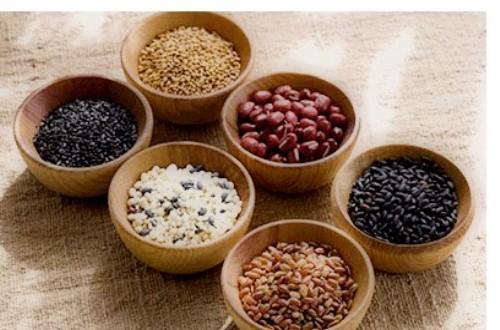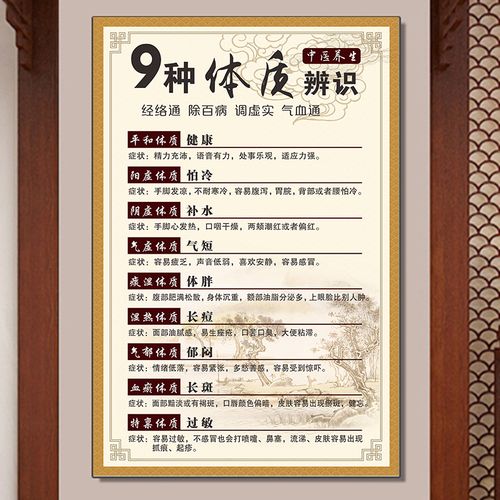Traditional Chinese Medicine (TCM) is an ancient and sophisticated system of health care that has been used for thousands of years in China and other Asian countries. It encompasses a variety of practices, including acupuncture, herbal medicine, dietary therapy, and exercise, all aimed at promoting balance and harmony within the body. This comprehensive guide delves into the key principles and practices of TCM, offering insights into how it can enhance overall well-being and longevity.
**The Philosophical Foundation of TCM**
At the core of TCM is the belief in the interconnection between the body, mind, and environment. This holistic approach views the body as an integrated whole, where every part is interconnected. One of the fundamental concepts in TCM is the balance of Yin and Yang. These two complementary forces represent opposite but interconnected aspects of all things. Yin is associated with qualities like darkness, cold, and stillness, while Yang is linked to light, warmth, and activity. Health, according to TCM, is achieved when Yin and Yang are in harmony.
Another key concept is Qi (pronounced "chee"), often translated as "vital energy" or "life force." Qi flows through the body along pathways called meridians, and it is believed that a balanced flow of Qi is essential for good health. Any disruption or blockage in this flow can lead to illness or discomfort. TCM treatments often aim to restore and balance Qi within the body.
**Acupuncture: Balancing Qi and Promoting Healing**
Acupuncture is one of the most widely recognized components of TCM in the West. It involves the insertion of very thin needles into specific points on the body, known as acupuncture points. These points are located along the meridians, and stimulating them is believed to balance the flow of Qi and alleviate various ailments.
Scientific research has begun to explore the mechanisms behind acupuncture. It is thought to work by stimulating the nervous system, releasing endorphins, and promoting blood circulation. This can result in pain relief, reduced inflammation, and improved overall well-being. Acupuncture is commonly used to treat conditions such as chronic pain, headaches, stress, and anxiety, as well as to support overall wellness and balance.
**Herbal Medicine: Nature’s Pharmacy**

Herbal medicine is another cornerstone of TCM. This practice involves the use of various plants, minerals, and animal products to create formulas that address specific health issues. TCM herbalists consider not only the symptoms but also the individual's overall constitution, which allows for highly personalized treatments.
Herbs in TCM are categorized by their properties, such as warming or cooling, and their effects on the body's organs and systems. For example, ginseng is often used to boost energy and vitality, while ginger is known for its warming properties and ability to aid digestion. Traditional Chinese herbal formulas are complex combinations that are designed to address both the root cause and the symptoms of a condition.
**Dietary Therapy: Eating for Balance**
Dietary therapy is a vital aspect of TCM, emphasizing the importance of eating according to one's constitution and the season. Food in TCM is classified according to its energetic properties, such as warming, cooling, drying, or moisturizing. This approach is quite different from Western nutritional science, which focuses more on the biochemical composition of food.
For example, during the winter, which is associated with cold and Yin energy, TCM recommends consuming warming foods like ginger, cinnamon, and hearty soups to support the body's Yang energy. Conversely, in the summer, cooling foods such as cucumber, watermelon, and mint are advised to balance the heat and excess Yang energy. This seasonal eating helps maintain internal balance and prevents illness.
**Qigong and Tai Chi: The Art of Movement and Meditation**
Qigong and Tai Chi are traditional Chinese exercises that combine movement, meditation, and breath control. They are designed to cultivate and balance Qi, enhance physical and mental health, and promote relaxation and mindfulness.
Qigong involves a series of postures, movements, and breathing techniques that can be practiced by people of all ages and fitness levels. It is known for its ability to reduce stress, improve immune function, and increase vitality.
Tai Chi, often described as "meditation in motion," is a martial art that emphasizes slow, deliberate movements and deep breathing. It is especially beneficial for improving balance, flexibility, and overall physical coordination. Tai Chi is also widely practiced for its mental health benefits, including reducing anxiety and depression.

**Holistic Wellness: Integrating TCM into Modern Life**
Integrating TCM into modern life involves more than just adopting its practices; it requires a shift in mindset towards a holistic approach to health. This means considering not only physical symptoms but also emotional and mental well-being, lifestyle, and environmental factors.
One of the strengths of TCM is its emphasis on prevention. Regular practices such as acupuncture, herbal medicine, proper diet, and exercise can help maintain balance and prevent the onset of illness. Additionally, TCM encourages mindfulness and a deep connection to nature, which can be particularly beneficial in today’s fast-paced and often stressful world.
It is important to consult with a qualified TCM practitioner before starting any treatment, as they can provide personalized advice based on an individual's unique constitution and health needs. Whether you are seeking to address specific health concerns or simply looking to enhance your overall well-being, TCM offers a wealth of knowledge and practices that can be integrated into your daily life.
**Conclusion**
Traditional Chinese Medicine offers a comprehensive and holistic approach to health and wellness. By understanding and applying the principles of Yin and Yang, Qi, and the balance of the body's internal energies, individuals can cultivate a deeper sense of harmony and vitality. Whether through acupuncture, herbal medicine, dietary adjustments, or practices like Qigong and Tai Chi, TCM provides valuable tools for promoting long-term health and well-being.
For those interested in exploring TCM, it is advisable to seek guidance from experienced practitioners and to approach these practices with an open and curious mind. The journey to holistic wellness is a lifelong one, and TCM offers a rich and profound tradition that can enhance this journey in meaningful ways.
转载请注明:成都会所桑拿-四川成都休闲桑拿推荐论坛! » 武汉桑拿 » Unlocking the Secrets of Traditional Chinese Medicine: A Comprehensive Guide to Holistic Wellness
版权声明
本文仅代表作者观点,不代表成都休闲网立场。
本文系作者授权发表,未经许可,不得转载。

























